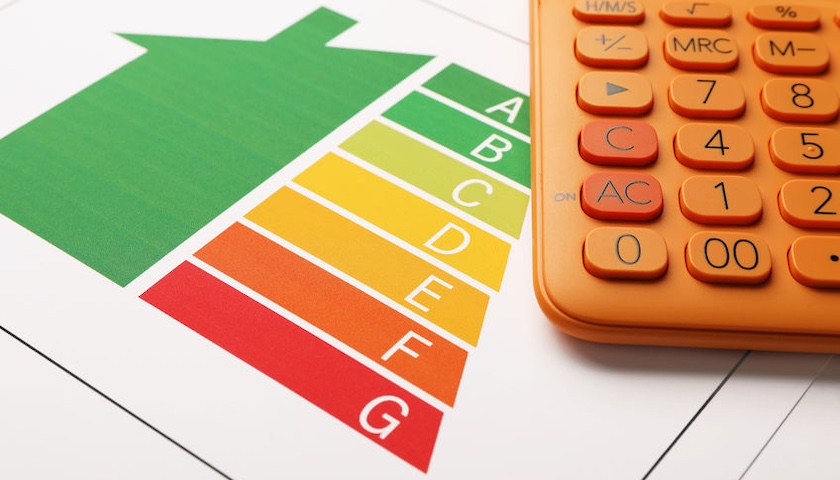Back in September 2023, the then Conservative government scrapped plans to force some landlords to make EPC upgrades.
Before then, there was a policy that would have meant landlords needed an Energy Performance Certificate (EPC) with a rating of ‘C’ or higher.
Originally, all new tenancies would have needed any necessary EPC upgrades by 2025. Existing tenancies would have had to follow suit by 2028.
This then changed so that all properties would have needed an EPC rating by 2028. Finally, then Prime Minister Rishi Sunak relaxed his ‘net-zero’ goals. As a result, the requirement for EPC upgrades was binned.
Labour will reintroduce EPC upgrades
Before the 2024 general election, Labour said in its manifesto that it would reintroduce the policy. At Labour’s conference in September 2024, energy security secretary Ed Miliband confirmed that all rental properties in England will need an EPC certificate of ‘C’ or above by 2030.
The cost of EPC upgrades
The cost of making EPC upgrades very much depends on the type of rental property you have. If you have older properties, such as Victorian houses, you may face large bills. This is because these houses are more likely to have poor insulation, outdated glazing and inefficient boilers, among other things. Modern properties are built to higher energy efficiency standards, meaning they may be compliant already.
That said, if you do need to make EPC upgrades, they can be expensive. The National Residential Landlords Association (NRLA) says that solid wall insulation can cost north of £20,000, particularly for properties without cavity walls. Indeed, the NRLA points out that research it did in 2021 found that, in some areas of the North and the Midlands, the cost of EPC upgrades is about a quarter of property values.
A cap on costs?
The original plans unveiled by the Conservative government did set a cap on the amount landlords would have to spend on EPC upgrades. This was £10,000. We currently don’t know if Labour will set a similar cap. However, there will be a consultation on the EPC plans later in 2025, so we expect the responses to that will inform any future cap.
How many landlords will be affected?
It’s difficult to put a figure on how many landlords will be affected by the new EPC upgrade rules. However, in 2023, data analysts Outra found that the UK had about 4.5 million rental homes with an EPC rating of ‘D’ or lower. It’s important to note that this figure is not just for England.
Similarly government figures from 2021 found that about 8 million properties in England didn’t have at least a band ‘C’ rating. That figure, though, is for all properties – not just rental ones.
On a reasonably positive note, a study by Shawbrook Bank in 2023 found that 80% of landlords were already prepared for the original 2025 deadlines. Of this figure, 30% already had compliant properties. The remaining 50% had plans to make the relevant EPC upgrades by 2025. This would suggest that many properties are already compliant.
What if I need to upgrade a property?
If you are a landlord with property and you need an EPC upgrade, you have several options. Firstly, you can pay for the upgrades from savings or rental income. In this case, it may be worth waiting a few months to find out if there will be a cap on upgrade expenditure. Alternatively, you may want to consider selling non-compliant properties. There is nothing stopping private buyers acquiring a home with a low EPC rating if they plan to live in it themselves. If you do this, though, you’ll need to consider factors such as capital gains tax. However, it may be better in the long term to sell and buy an EPC compliant property instead – we recommend you talk to an expert.
If you’d like specialist advice on your property portfolio, we recommend signing up for our Landlord Platinum Accounting Service. It not only gives you access to Making Tax Digital compliant landlord accounting software, but also gives you valuable perks such as priority access to tax planning services, preparation of your Self-assessment Tax Returns, arrangement of fee-free mortgages and more. Get in touch today to learn more.
About Jon Pryse-Jones
Since joining THP in 1978, Jon Pryse-Jones has been hands on with every area of the business. Now specialising in strategy, business planning, and marketing, Jon remains at the forefront of the growth and development at THP.
An ideas man, Jon enjoys getting the most out of all situations, “I act as a catalyst for creative people and encourage them to think outside the box,” he says, “and I’m not afraid of being confrontational. It often leads to a better result for THP and its clients.”
Jon’s appreciation for THP extends to his fellow team members and the board. “They really know how to run a successful business,” he says. He’s keen on IT and systems development as critical to success, and he continues to guide THP to be at the cutting edge and effective.
Read More











